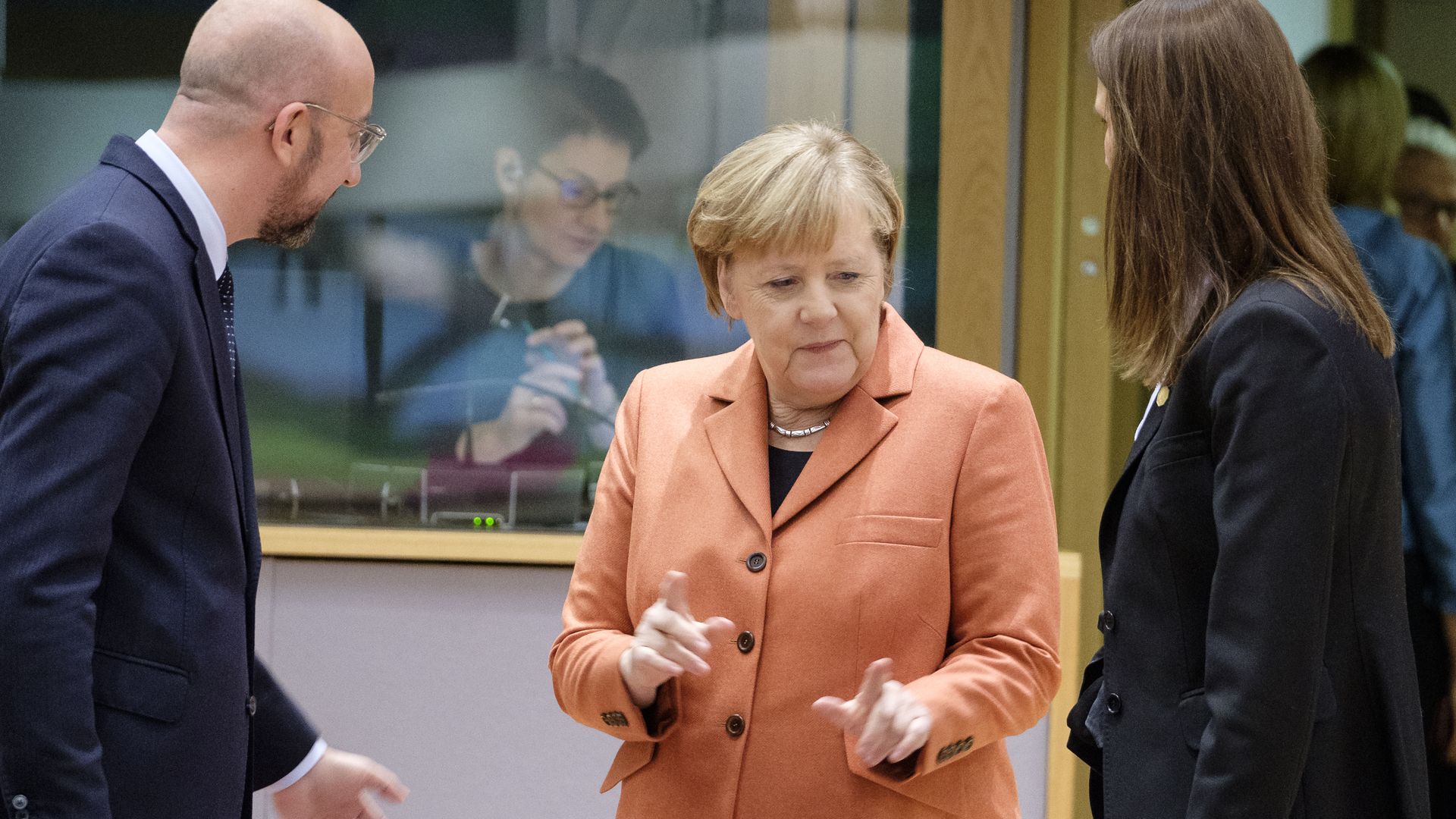Merkel's coronavirus response unifies Germans but divides EU
Add Axios as your preferred source to
see more of our stories on Google.

Merkel performs a delicate dance in Brussels. Photo: Thierry Monasse/Getty Images
Angela Merkel has managed to unify Germany during the coronavirus crisis, but her response is proving far more divisive at the European Union level.
The big picture: Merkel returned from self-quarantine to the chancellery this week, and her steady, trusted leadership has some wishing she'd stay there forever. However, some of Merkel's EU colleagues consider her a roadblock to Europe's long-term health.
Although Germany has not reached the peak of its pandemic curve, the country has been recognized for its decisive action.
- Germany is testing approximately 500,000 people per week, far more than other European countries, while boosting its supply of ICU beds and ventilators. Government guidance on social distancing has been widely followed.
- The government also worked efficiently to pass a 1.1 trillion euro spending package last month to stabilize the economy. Liquidity for big companies and direct assistance to freelancers flowed fast without much red tape.
- Germans find comfort in Merkel’s characteristic straightforwardness, mixed now with empathy (in a recent podcast episode, Merkel noted how isolating it could be to be connected to the world solely through the telephone or internet).
- Even after 15 years in office, 64% of Germans view their chancellor favorably.
The flipside: Within the EU, Merkel and her government are being cast in a different light.
- EU members want to see more financial solidarity in the face of what could be a crippling economic downturn.
- Germany has resisted the collectivization of debt through "coronabonds," reprising its position during the eurozone debt crisis.
- Germany instead wants to tap the European Stability Mechanism (ESM), but hard-hit countries like Italy and Spain don't want the stigma of borrowing money under strict conditions, even if they are eased for corona-related relief.
Between the lines: Berlin has long feared getting stuck with the bill for EU partners' spending. Those partners contend that Germany has profited from the EU single market, with the euro boosting its exports, while not doing enough to ensure its stability in times of crisis.
What’s next: EU finance ministers are huddled in Brussels, trying to find a compromise. In the meantime, Germany has started to take in patients from overwhelmed hospitals in France and Italy. That will earn some goodwill, though it could dry up quickly.
Sudha David-Wilp is a senior transatlantic fellow and deputy director of the German Marshall Fund’s Berlin office.
